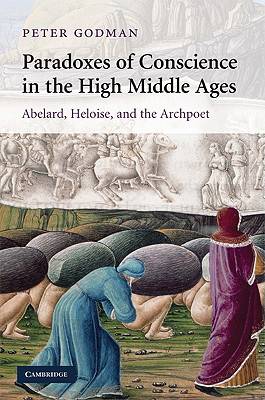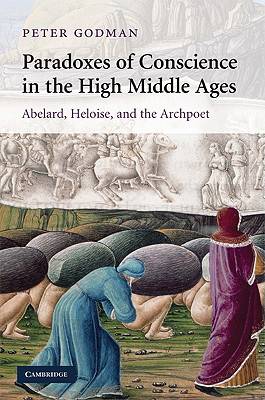
Je cadeautjes zeker op tijd in huis hebben voor de feestdagen? Kom langs in onze winkels en vind het perfecte geschenk!
- Afhalen na 1 uur in een winkel met voorraad
- Gratis thuislevering in België vanaf € 30
- Ruim aanbod met 7 miljoen producten
Je cadeautjes zeker op tijd in huis hebben voor de feestdagen? Kom langs in onze winkels en vind het perfecte geschenk!
- Afhalen na 1 uur in een winkel met voorraad
- Gratis thuislevering in België vanaf € 30
- Ruim aanbod met 7 miljoen producten
Zoeken
€ 125,95
+ 251 punten
Uitvoering
Omschrijving
The autobiographical and confessional writings of Abelard, Heloise and the Archpoet were concerned with religious authenticity, spiritual sincerity and their opposite - fictio, a composite of hypocrisy and dissimulation, lying and irony. How and why moral identity could be feigned or falsified were seen as issues of primary importance, and Peter Godman here restores them to the prominence they once occupied in twelfth-century thought. This book is an account of the relationship between ethics and literature in the work of the most famous authors of the Latin Middle Ages. Combining conceptual analysis with close attention to style and form, it offers a major contribution to the history of the medieval conscience.
Specificaties
Betrokkenen
- Auteur(s):
- Uitgeverij:
Inhoud
- Aantal bladzijden:
- 242
- Taal:
- Engels
- Reeks:
- Reeksnummer:
- nr. 75
Eigenschappen
- Productcode (EAN):
- 9780521519113
- Verschijningsdatum:
- 4/06/2009
- Uitvoering:
- Hardcover
- Formaat:
- Genaaid
- Afmetingen:
- 152 mm x 229 mm
- Gewicht:
- 498 g

Alleen bij Standaard Boekhandel
+ 251 punten op je klantenkaart van Standaard Boekhandel
Beoordelingen
We publiceren alleen reviews die voldoen aan de voorwaarden voor reviews. Bekijk onze voorwaarden voor reviews.









